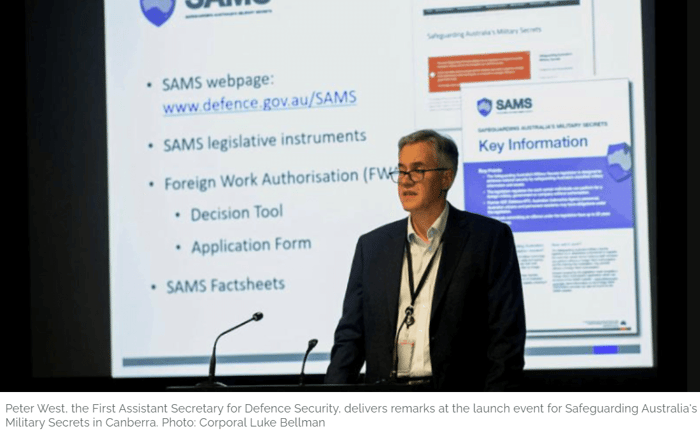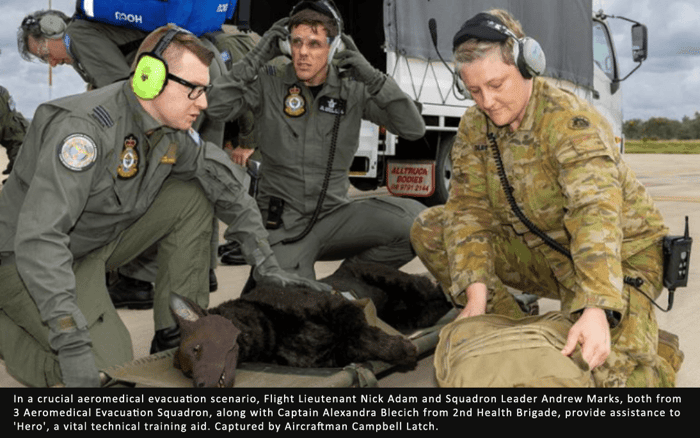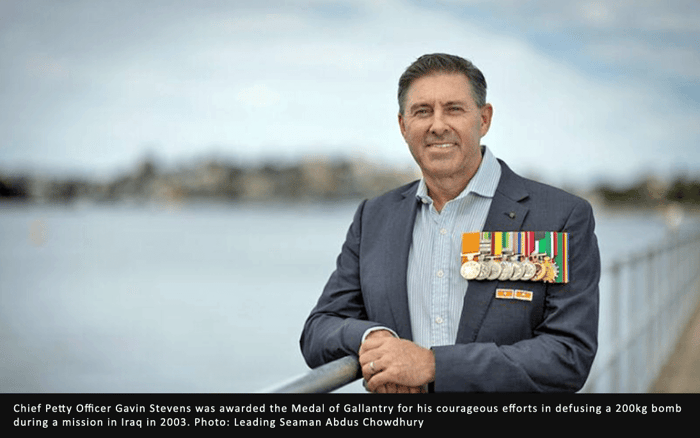
New Law: Former Defence Personnel Need Approval for Overseas Work
In compliance with recently enacted legislation effective May 6, 2024, former military personnel may be obligated to obtain defence authorisation prior to engaging in employment with foreign military entities or governments.
The duration of this requirement is contingent upon the individual's role within defence and the level of sensitivity associated with the information they were exposed to during their service, spanning one, five, or ten years following discharge.
Certain exemptions may apply for positions involving Five-Eyes countries, Australian governmental endeavours, or United Nations assignments. Peter West, Defence’s Chief Security Officer, urges individuals to refer to their website for further guidance.
“There’s a number of exclusions people need to check and, if they fall into one, no problem,” he said.
“But if they don’t, you will need to fill in the online form, then we’ll assess if the work raises any national-security issues,” he said.
When evaluating potential risks, the assessment team considers both the nature of the proposed work and the specific country where it will be conducted.
“I think in most cases there will be no issues, but if we think there’s a risk, we may deny the authorisation or give you one with conditions attached,” Mr West said.
Former personnel engaged as contractors for foreign military or governmental entities are also subject to this requirement.
Mr. West emphasised that the primary focus lies on the ultimate beneficiary of the work, rather than solely on the entity responsible for hiring.
“You could be working for Boeing, a big US company, but if Boeing were employed by the Indian government to do flight training, you would be impacted by the legislation because India is the end beneficiary, not Boeing,” he said.
The Safeguarding Australia's Military Secrets Act of 2024 extends its jurisdiction to encompass Australian citizens or permanent residents undergoing training in military strategies, as well as the utilisation of software or technology with military applications.
Prompted by a 2022 investigation into reports of China's recruitment of pilots from Five-Eyes nations for carrier pilot training, this Act was introduced.
While existing laws have traditionally targeted individuals providing sensitive information to foreign nations, Mr. West highlighted that the new regulations aim to pre-empt such occurrences.
The legislation maintains a broad scope, meaning even generic services such as cleaning may necessitate authorisation.
“It gets very difficult being too specific. We can quickly approve the proposals that are innocuous and worry about the ones which could lead to the exposure of sensitive information,” Mr West said.
The recently enacted legislation does not pertain to individuals enlisting in foreign militaries, as this falls under the purview of the Crimes Act and includes exemptions for officially recognised foreign military organisations.
Mr. West emphasised that his team aims to facilitate rather than hinder individuals from utilising their defence expertise to secure positions abroad, striving to expedite the process wherever feasible.
He also expressed confidence that many individuals would voluntarily refrain from pursuing roles with evident national security implications, thus engaging in a form of self-selection.
“Most people with Defence experience understand the types of security threats we are concerned about and will know which applications are going to go through quickly and are going to take a bit more time and be more complex,” Mr West said.
 Carry the spirit of service with you anywhere you are in the world
Carry the spirit of service with you anywhere you are in the world




















